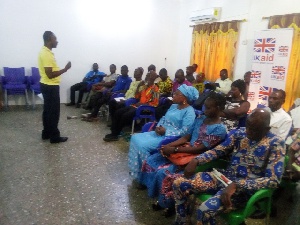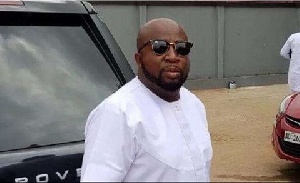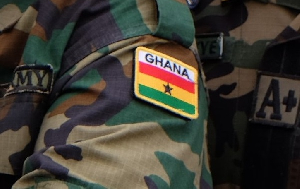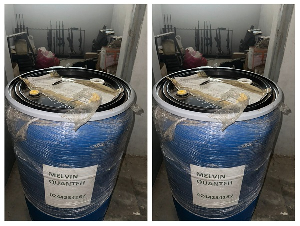 File photo; A section of the audience
File photo; A section of the audience
Basic Needs Ghana, a Mental Health Advocacy Non-Governmental Organization (NGO), has engaged two vulnerable groups in the Upper East Region to share their experiences with the various Social Protection Intervention Programmes.
The government’s Social Protection Intervention programmes include the National Health Insurance Scheme (NHIS), Livelihood Empowerment Against Poverty (LEAP), National Youth Employment Agency (NYEA), the three per cent of the District Assembly Common Fund (DACF), Planting For Food and Jobs among others.
The Regional Interface and Relationship Strengthening Meeting held in Bolgatanga included representatives from the Ghana Federation of Disabled Organizations (GFDOs) and Persons with Mental Illness and Epilepsy (PWMIE).
The meeting brought together various stakeholders including Municipal and District Assemblies (MDAs), Planners, Assemblies Social Services Committees, representative of the Management of the NHIS, the Mental Health Unit of the Ghana Health Service, Basic Needs Ghana Staff and the Media.
Mr Adam Dokurugu Yahaya, the Programmes Manager of Basic Needs Ghana, said the programme forms part of the activities of the Health Sector Support Programme of the UKAID project funded by the Department for International Development (DFID).
She said it was aimed at creating a common platform for Persons With Disabilities (PWDs) and Mental Health Self groups to collaborate with duty bearers to help address the challenges facing them.
The duty bearers sensitized the groups on how to develop and package their requests for the MDAs for redress particularly on how to develop acceptable proposals to access the DACF.
The groups complained that they were confronted with numerous challenges in accessing the Social Protection Intervention Programmes particularly the NHIS, LEAP and DACF.
Citing examples of their predicaments, they said it took them about six months to one year for their NHIS cards to be registered or be renewed by the Scheme and attributed the problem to the numerous processes involved in getting the cards.
“The vetting process of our names by the Department of Social Welfare and the NHIS at the district and the regional levels before submitting them for approval at the national level is the major cause of the delay,” they said.
The groups also alleged that the Livelihood Empowerment Against Poverty (LEAP) intervention was being politicized and noted that the political heads of the various Municipal and District Assemblies (MDAs) were fond of filling in the names of their favourites who were financially sound to benefit from the LEAP instead of the vulnerable.
Majority of the PWMIE also complained about being marginalized by some of the MDAs when they are to access the three per cent of the District Assembly Common Fund (DACF).
The two vulnerable groups commended the NGO for organizing the programme and said for the intervention to achieve maximum results, it should be decentralized at the regional and district levels to benefit more vulnerable people.












